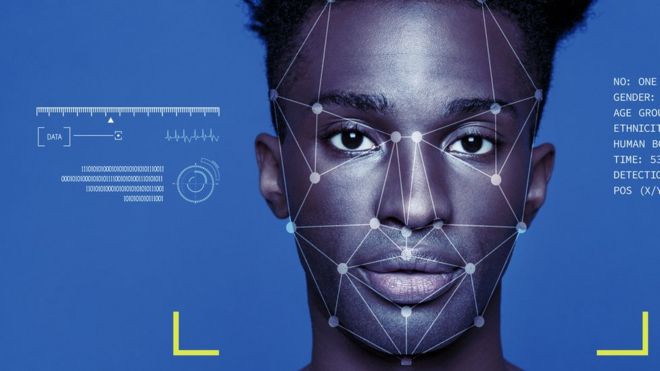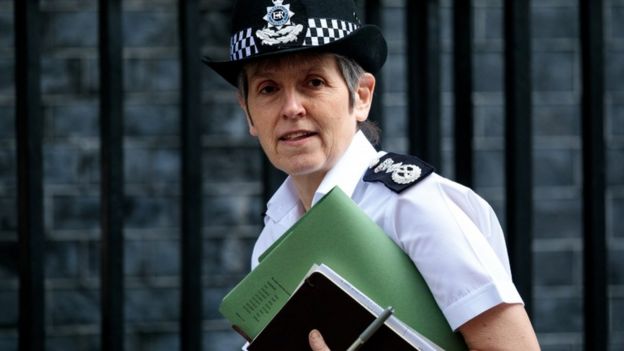Entertainment reporter(wp/bbc):::
Winning Eve might be a more appropriate title for the BBC's hit drama after the Bafta TV Awards on Sunday.
There were wins in some of the night's biggest categories for Killing Eve, including best drama series and best actress for Jodie Comer.
I'm A Celebrity and Britain's Got Talent were among the other winners in what has been a strong year for British television.
"Just sitting [in the audience] watching these incredible programmes makes me realise that we really should... get a telly," joked Jessica Hynes during her own acceptance speech for female comedy performance.
Here are eight things we learned backstage at the ceremony.
1. Graham Norton bossed the opening monologue
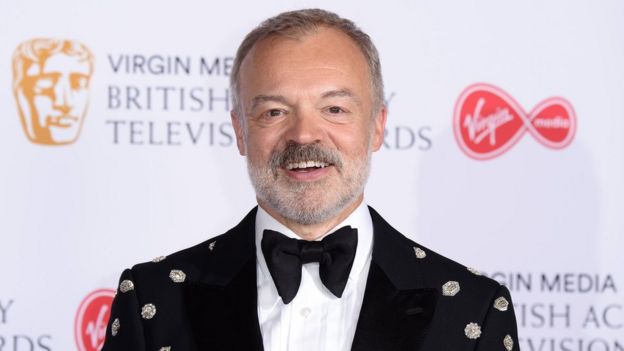 GETTY IMAGES
GETTY IMAGES
Every year, the television industry keeps its antennas crossed that the TV Baftas won't fall on the same weekend as Eurovision, so that Graham Norton is available to host.
2. Jodie Comer has a surprising link to Line of Duty
 GETTY IMAGES
GETTY IMAGES
Awards ceremonies always leave the biggest category of the night to the very end. The Oscars with best picture, for example.
So it was telling that Bafta considered best actress the tastiest category of the night this year, leaving it to last.
"Women are fashionable at the moment, so it's just great to be associated with them," said Steve Coogan as he introduced it.
Sandra Oh and Keeley Hawes were among the nominees in this one, but it was Jodie Comer who triumphed.
"It's just a dream, I'm very emotional, I think I blubbed my way through [my acceptance speech]," Comer said backstage.
In her speech, she thanked Line of Duty star (and fellow Liverpudlian) Stephen Graham, adding: "If I didn't owe you a pint before, I certainly do now."
Many viewers didn't realise the two had a connection, but it was Graham who encouraged his agent Jane Epstein to take on Comer after they worked together on BBC mini-series Good Cop, describing her as an "extreme talent".

3. David Walliams wants X Factor to die
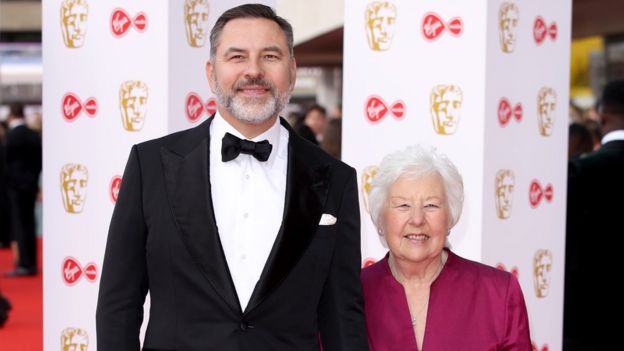 GETTY IMAGES
GETTY IMAGES
"Thank you for that seated ovation. You're so thrilled for us, I can feel it," joked David Walliams as he entered the press room to an admittedly half-hearted round of applause.
He was fresh from accepting the prize for best entertainment programme on behalf of Britain's Got Talent.
And by the sounds of it, Walliams is very happy where he is - although he is considering Simon Cowell's offer to take part in Celebrity X Factor later this year.
"Well, I think if I can kill that format forever by appearing on it, I'd very much like to," Walliams said, speaking on behalf of the nation.
"I cannot sing a note so I'd fit in very well... I would love to be on that stage, doing a duet with Wagner."

4. Villanelle may have been loosely based on Scary Spice
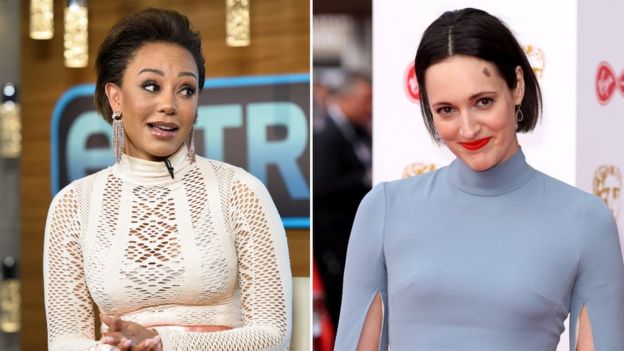 GETTY IMAGES
GETTY IMAGES
Phoebe Waller-Bridge has become just about the hottest property in entertainment in the last year.
In addition to adapting Killing Eve for the small screen, the second season of her hugely popular comedy Fleabag has just concluded, and she has also co-written the next James Bond film.
"I've made a promise to myself that I'm not going to talk about Bond tonight, I'm just going to talk about Killing Eve," she said backstage - a signal to journalists not to ask about anything 007.
So instead, she ended up discussing her love of the Spice Girls and their impact on her writing. Particularly her favourite, Scary Spice.
"It was because she was scary, a bit like Villanelle, perhaps I've never let Scary go," she explained.
"She was wild, she was out there, she didn't care about what people thought about her. She was just really cool. And wore trousers."

5. Huw Edwards probably isn't going to do Strictly Come Dancing after all
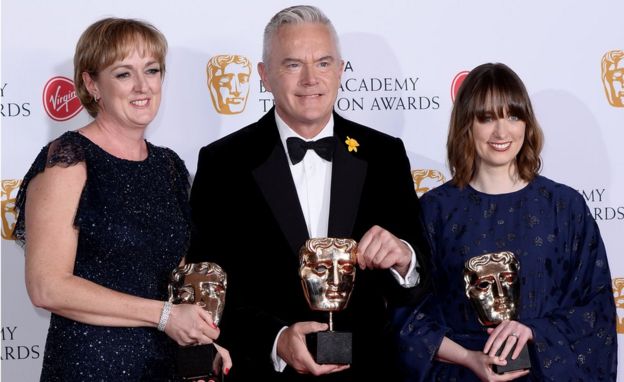
 GETTY IMAGES
GETTY IMAGES
Planning for this year's Strictly is well under way, with DJ Chris Evans having already announced his candidacy.
BBC News host Huw Edwards has also been in the frame - having told Radio 2's Steve Wright earlier this year he would consider taking part.
But having had time to ponder it, Edwards appears to have decided against following in the footsteps of fellow news figures such as Jeremy Vine, Kate Silverton and John Sargeant.
"The honest answer is I've not been asked. If I were asked, I think I'd find it quite difficult with the current job I'm doing," he explained.
"Combining that with being the BBCs chief news anchor, that would be quite difficult. In future, when my professional life might be in a different shape, I'd consider it."
Edwards and his team took home the Bafta for live event for the coverage of the Royal British Legion Festival of Remembrance.

6. Daisy May Cooper trashed the red carpet
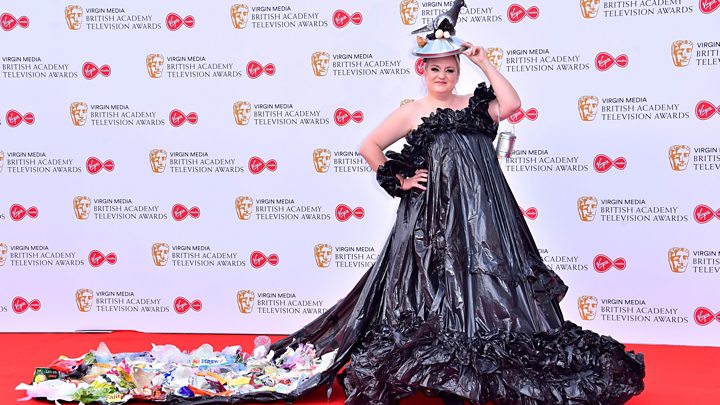
Jaws were dropping on the red carpet for the likes of Keeley Hawes and Jodie Comer, both of whom wore stunning dresses.
But it was This Country star Daisy May Cooper who caught the most attention, with her bin bag ensemble.
It was so extravagant it wouldn't have looked out of place at last week's Met Gala.
How much did it cost? "About five quid," she laughed, adding it was made by her mum.
But, Cooper explained, she chose this year to donate the money she would have spent on a dress to a food bank charity.

7. Mack (stuck in) the knife
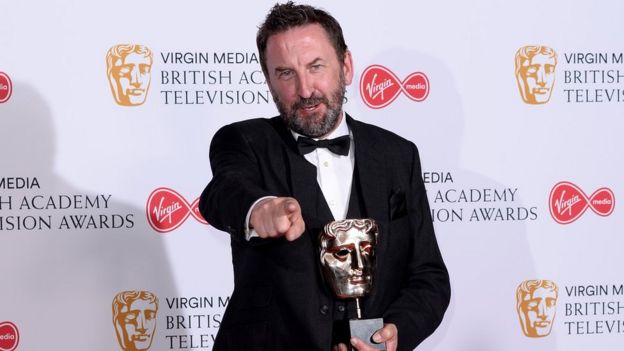 GETTY IMAGES
GETTY IMAGES
Lee Mack, who won best entertainment performance for Would I Lie To You?, delivered one of the night's highlights, poking fun at both his co-stars and Bafta's own sponsor in his speech.
"Right, I'll keep it brief because I know we just want to go for dinner now," he began.
"Especially this year, because there's no chocolate under the seat. Are we still on BBC One, or is it Channel 5 now?"
He continued: "Thanks for this, I don't want to sound ungrateful, but on the off-chance that we do get to come back next year, is there any chance you couldn't do it on the same day as the final Premier League game?
"I'm only kidding, I couldn't have watched it anyway because I've got [Bafta sponsor] Virgin Media and the reception is terrible."
Paying tribute to his co-stars Rob Brydon and David Mitchell, he joked: "It's bad enough I get paid more than them, but this is going to kill them."

8. Dec the halls with lots of Baftas
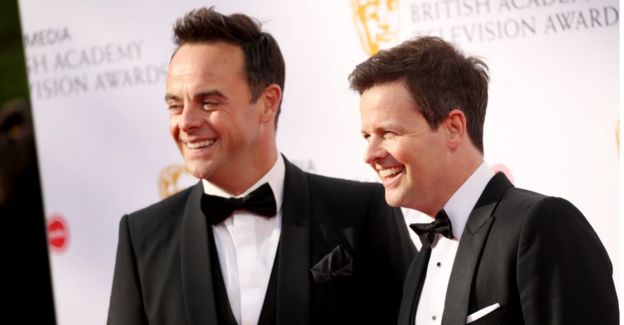 GETTY IMAGES
GETTY IMAGES
Love Island won the prize for best reality and constructed factual last year, but bizarrely wasn't even nominated this year despite having its biggest series yet in 2018.
Instead, I'm A Celebrity... Get Me Out Of Here! took home the prize, in a year that saw Holly Willoughby replace Ant McPartlin as a co-presenter on the show.
"Holly came in and did a fantastic job, she loved it and we loved having her there," Dec said backstage.
"It was a tough year. Personally and professionally. But I just went out and tried to do my best, keep the shows warm for him when he was ready to come back, so I tried to deliver as best I could."
Britain's Got Talent also triumphed, despite the fact Dec had to host the live shows solo after Ant McPartlin's drink-drive conviction.
"And thankfully," he laughed, "they both won Baftas tonight, so how cool am I?!"
After last year's clash, Norton returned to fronting the Bafta ceremony on Sunday and delivered a killer opening sequence true to form. His best jokes included:
- "We now have a female host of Question Time, an all-female line-up on Newsnight. It's not only great for equality, but it saves the BBC a fortune."
- "Every week on The Great British Bake Off, a Baker gets kicked out. This week it was Danny. Literally a show stopper."
- "The Bros documentary really was must-see television. A lot of people have argued about which one emerged with the most dignity. I would say on balance it was probably the bassist, Craig, who declined to take part."
- "Everyone loved Line of Duty. The interviews were incredible. A more forensically detailed interrogation of times, dates and mobile phone data hasn't been seen since that time Seann Walsh got home late from Strictly practice."
